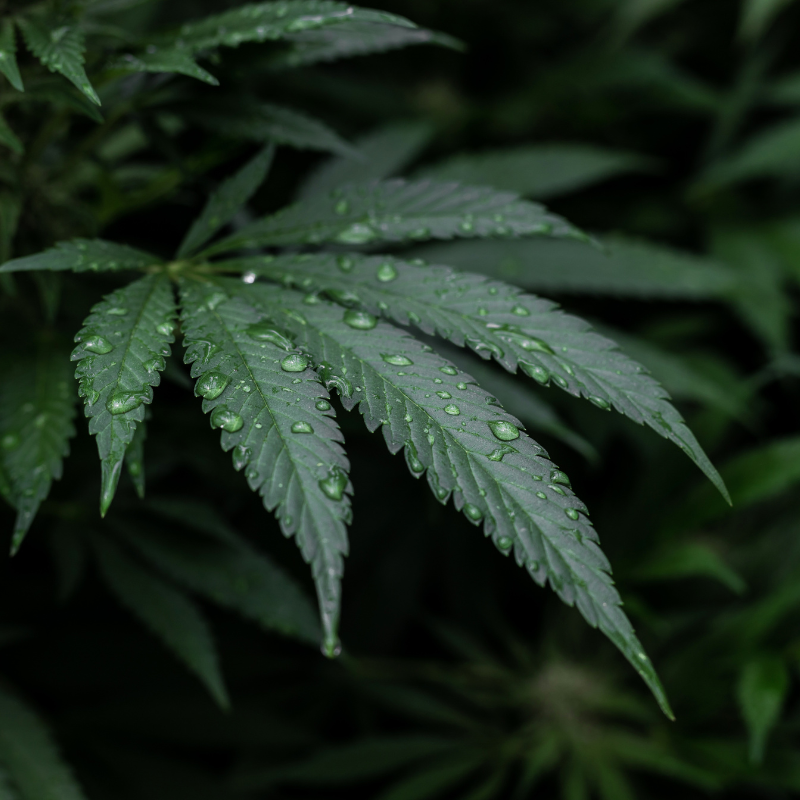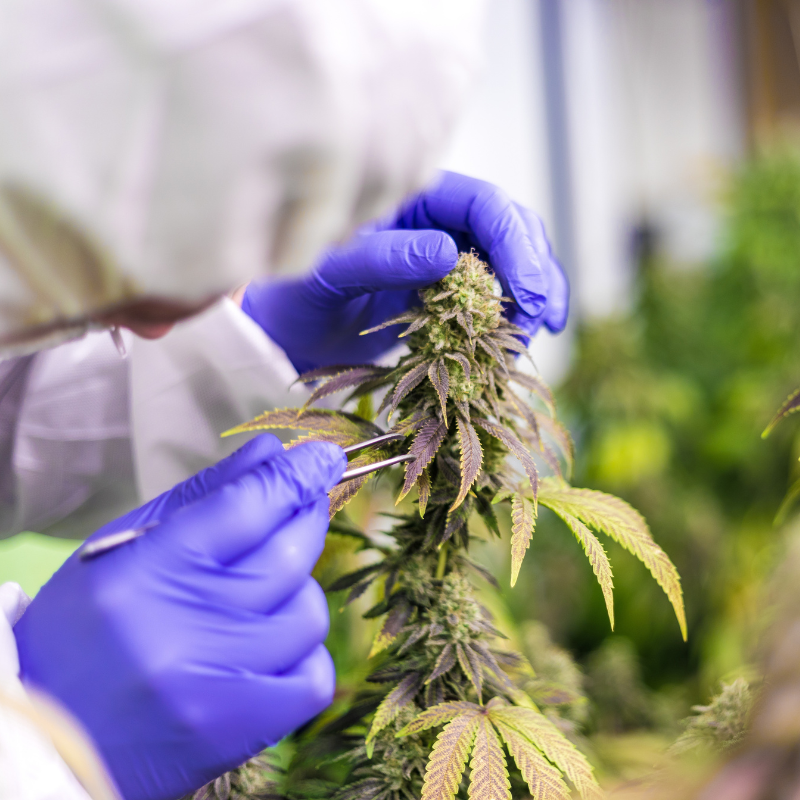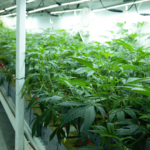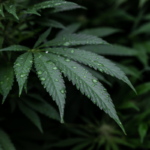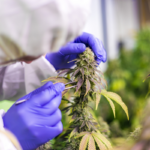What is the Best Water for Growing Cannabis
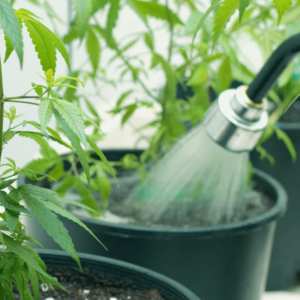
Water is one of the most important factors when it comes to growing any plant. In using a Grow Flow system to grow your cannabis, the water you use can create a difference in both the quality and yield produced when it comes time to harvest. All plants, including cannabis, consist of roughly 80% water.
Why Does the Type of Water Matter?
In both soil-based and hydroponic-based methods of growing cannabis, water is needed to help assure that a strong, potent plant is harvested. Water contains a variety of nutrients and bacteria that a plant needs to grow. On the other hand, water can also contain harmful chemicals or bacteria that will hurt the plant and hinder its growth. Knowing your water’s quality and content can help prevent problems your plant might experience, like root rot for instance.
Water can play a big factor in making sure your plant maintains the proper pH balance. Cannabis, like many other plants, prefers slightly more acidic conditions to grow. A marijuana plant will tolerate anything between a pH level of 5.0 to 7.0. However, the optimal pH balance for growing cannabis sits between 5.8 and 6.2. If you’re using a hydroponic system, cannabis roots tend to develop better within the range of 5.5 and 6.0. It is suggested that you test your pH balances every two days. This way you can discover problems in your soil or hydroponic system early on, and fix any imbalances before harm is done to your plants.
Using Soft Water to Grow Cannabis
Soft water can be found in a variety of sources and can often be considered some of the best water to provide your plants with. Water is often considered “soft” when it falls between 10-50 parts per million (ppm). Slightly hard water can be found within the boundaries of 50-100 ppm. Types of soft water include rain water, distilled water, and purified water. Soft water has a more neutral pH level due to its low concentration of mineral ions. Soft water can also have a tendency to have a high concentration of salt, but usually not enough to cause harm to people or plants.
Using Distilled Water to Grow Cannabis
Distilled water can be recognized at the gallon jugs of water you can find at your local drug store or supermarket. Distilled water does not contain any minerals or other types of microorganisms. While this can be beneficial in knowing your water doesn’t contain any harmful minerals, it also means that distilled water doesn’t contain any beneficial minerals to enrich your plants. If you’re using distilled water for your system, this water will work well as a vehicle to help deliver nutrients that will be in your additional growing medium. Distilled water, due to its lack of minerals, can pull nutrients from your plants or soil. It is important to keep in mind that distilled water may contain a higher pH level. Testing the water beforehand and adjusting its level before using is an important step. While some cultivators prefer distilled water, other types of soft water may be preferred in its place.
Using Purified Water to Grow Cannabis
While purified water is similar to distilled water it is not the same. Purified water can be achieved by using a reverse osmosis system. However, reverse osmosis does not eliminate 100% of all minerals you would find in tap water. A reverse osmosis system can purify your water but will require a pH level adjustment before using it to water your weed plants, as reverse osmosis water usually holds a pH of 7.0. Softening water with a water softener is different than using a reverse osmosis system, and can actually be harmful to your plants. In a water softener system salt is used to remove calcium magnesium, however that salt content can build up on plants and their roots, leading them to die from thirst. Reverse osmosis on the other hand does not require the same process. Reverse osmosis pushes water through a semipermeable membrane. The membrane allows water to pass through, but not impurities or contaminants, which are then flushed down the drain. No salt is used in a reverse osmosis system, leaving your plant free from sodium and its buildup.
Using Rain Water to Grow Cannabis
Many growers consider rain water to be the best water to use when it comes to growing plants, including cannabis. While rain water is considered the earth’s most natural water source, it is not devoid of its own faults. Due to human pollution, rain water can be considered slightly acidic. Oftentimes, if using large containers to store your rain water, letting the water sit before use will allow the acid to neutralize. Just as you would with any other source of water, testing the pH balance before using it can help avoid any unwanted surprises. Utilizing a clean water collection system to store your rain water will help keep your water from absorbing unwanted elements from outside the container.
Rain water can even be used in your growing system. Just as you would in a soil-based growing operation, testing the rain water pH level before use is an important factor in keeping your water quality in the range it needs to be. Some studies show that rainwater collected in storage tanks tends to have a pH of around 5.6 which is on the lower side of the pH range that is acceptable. Unlike tap water, rain water does not contain chlorine or chloramines, known toxins to plants. Another benefit to using rainwater is its cost-effectiveness. In using less tap water to keep your plants watered, you’ll save money on your growhouse water bill.
Plant Temperature Matters
Not only does the type of water you use matter, but the temperature of your water matters too. In cannabis especially, the temperature of your water is a very important factor in the growing process. Many growers, both new and experienced, don’t take temperature into account. An easy way to add this to your daily checklist is by purchasing a water thermometer. Water that is too hot or too cold will not be able to absorb certain nutrients needed to nourish your cannabis plants. Water lower than 59 degrees Fahrenheit or 15 degrees celsius will cause your plant’s roots system to cease almost entirely. This affects your plant’s ability to absorb phosphorus. Additionally, cold water can cause your cannabis plants to become fragile, tremendously affecting your final yield.
Similarly, water that is too hot can cause just as much damage. Warmer water contains less oxygen. Oxygen is an important component of assisting plants in absorbing nutrients. A clear delay and plant growth are definitive consequences of using warm water. 23 degrees Celsius or 73.4 degrees Fahrenheit is considered the maximum temperature allowed for nutrient absorption to occur. Cannabis is considered to grow best when the water used is within the range of 20-22 degrees celsius and 68-71.6 degrees Fahrenheit.
Need Help With Your Water Quality?
Grow Flow can assist you in all of your water quality needs. From water quality testing to customizable growing systems for your growhouse, we can help find the right solution for you. You can contact a Grow Flow professional today by calling (816) 608-7477.

